From Caracas, Venezuela, meet geologist Patricia Varela.
If you’ve ever thought about the oil and gas industry, you already know that you can’t just go willy-nilly digging holes in the ground. In this regard, Patricia Varela is mission critical in deciding where to drill and how to support existing and new infrastructure, based on analysis of the composition of soil, the structure of the ground, the layers of earth, and the natural processes that influence the terrain.
Patricia grew up in Caracas, Venezuela, a country historically rich in oil. So why didn’t she pursue exactly this career in Caracas? “The political turmoil and government restrictions to local and foreign petroleum industries made me reevaluate my path, which left me fascinated by geotechnical engineering.” Studying abroad was her dream, challenging her with a steep learning curve.
In 2010, with 2 suitcases, one with clothes and one with books, she arrived in College Station. Coming from a tropical country, Texas winter was the first winter she’d ever experienced, and she had nothing in her suitcases to help with that. “The cultural shock was exciting, scary, and exhausting all at once. In one year, I had been hit by a truck (unharmed thanks to my many layers of new winter clothes), had my first roommate, purchased my first car, and significantly improved my English.”
Being the only Geologist in a crowd of Civil Engineers motivated her more fiercely to earn her Master’s in Science and PhD on Geotechnical Engineering from Texas A&M University. Her first consulting job is “so dynamic that in over 3 years I have not done the same thing twice. I am constantly learning new skills and techniques, which has kept me challenged every day. I wouldn’t have it any other way!”
She has an office in Houston, Texas, but her field work onshore has taken her to eleven states across the US, two of them offshore, and even off the coast of Mozambique. “I learned two important lessons from my migration experience: adaptation is a process that never ends, and when you migrate, you become an ambassador from your home country.”
Patricia advocates for Planet Earth through detection, analysis, mitigation, and monitoring, to develop sustainable civil infrastructure that balances earth’s natural equilibrium with optimal performance. Patricia employs many engineering techniques to install and protect infrastructure like cables, pipelines, wells, rigs, bridges, or wind farms, any of which could be susceptible to natural or man-made threats such as landslides, turbidity flows, scour, earthquakes, liquefaction, and subsidence. These are the just a few colossal scale challenges she deals with.
“I learned two important lessons from my migration experience: adaptation is a process that never ends, and when you migrate, you become an ambassador from your home country.” – Patricia Varela
To develop offshore ground models and conduct marine geohazard assessments, Patricia conducts in-situ (at the origin of) soil analysis and soil penetration testing, provides detailed descriptions and classifications of the results, and coordinates and assists in deployment and recovery operations of rigs. She has also represented clients while onboard, overseeing and supervising H&S, technical, and operational aspects of geotechnical field investigations. “The idea of merging technological and geological aspects to explore the most unknown corners of our planet sealed the deal.”
A fond memory of Patricia’s while working offshore happened while performing a marine geotechnical survey in a remote location. Survey equipment was deployed, and the recovery system for it had malfunctioned. A replacement part for the repair had to be shipped in from another continent. Until the repair was made, the vessel had to maintain a steady position. Meanwhile, the vessel’s engine cooling system struggled with biological fouling, which required reducing the engine output, and limiting the performance of the dynamic positioning system needed to maintain the vessel’s position.
The entire crew needed to work together to solve the problem with “outside-the-box” innovative thinking that truly stimulated the sense of community within every person on board. The crew’s ability to conduct assertive decision-making was remarkable, which ended with the resolution of the problem. “I learned through this experience that team work, leadership, positive attitude, professionalism, and common courtesy have a paramount importance in overcoming challenging circumstances and achieving project goals.”
The diverse nature of her career allows her to work from an office, laboratory, and conduct onshore and offshore field work. Patricia’s involvement with the Society for Underwater Technology (SUT) has taught her fascinating new technologies for collecting geological and geotechnical information. She looks forward to learning new surveying, construction and installation techniques, and integrating the groundbreaking advancements technology within the offshore industry. Offshore work has taught her to recognize the importance of following rigorous field procedures and standards to conduct geological and geotechnical site characterization. Her office work is now heavily influenced by a deeper understanding of where and how each soil or rock parameter was obtained, and how to include this information on the development of an integrated ground model.
“I believe that a paradigm shift is encouraging more women to work offshore. This trend will continue if women keep pushing the envelope, and are encouraged to pursue STEM careers. During my offshore experience I have found mentors that lift my confidence, and push me to extract the best from my professional performance. The deeply rewarding feeling of being an important contributor to a project that will serve a community needs to be communicated to the next generation of young women, especially as they make important decisions about their future.” An increasing number of women enroll in Science and Engineering academic programs, and many of them display key leadership qualities that are highly valuable in the maritime industry. Yet, female leaders represent an overwhelming minority. Highlighting contributions made by women, and providing a channel to discuss and learn from members of the offshore community are vital avenues that should be created by companies and professional organizations.
The stage of a career requiring the most determination is the student and young professional stage. Resilience and diligence form the foundation that a young professional will build on for the rest of their career. “This is why I volunteer my time as the Chair of the Young Professionals (YP) Committee of the SUT-US. We raise funds for college students, and promote personal and professional development by providing access to educational forums, mentoring programs, and outreach opportunities. I have also partaken in the launch of Women in Industry (WIND SUT), which cultivates awareness on inclusion, diversity, mentoring and leadership. The experience is gratifying when I think about how many scholarships we were able to sponsor or how much are we contributing to young professionals. It’s also enlightening to understand that the challenges I’ve faced are also experienced by other colleagues, whom I already admire for their strength.”

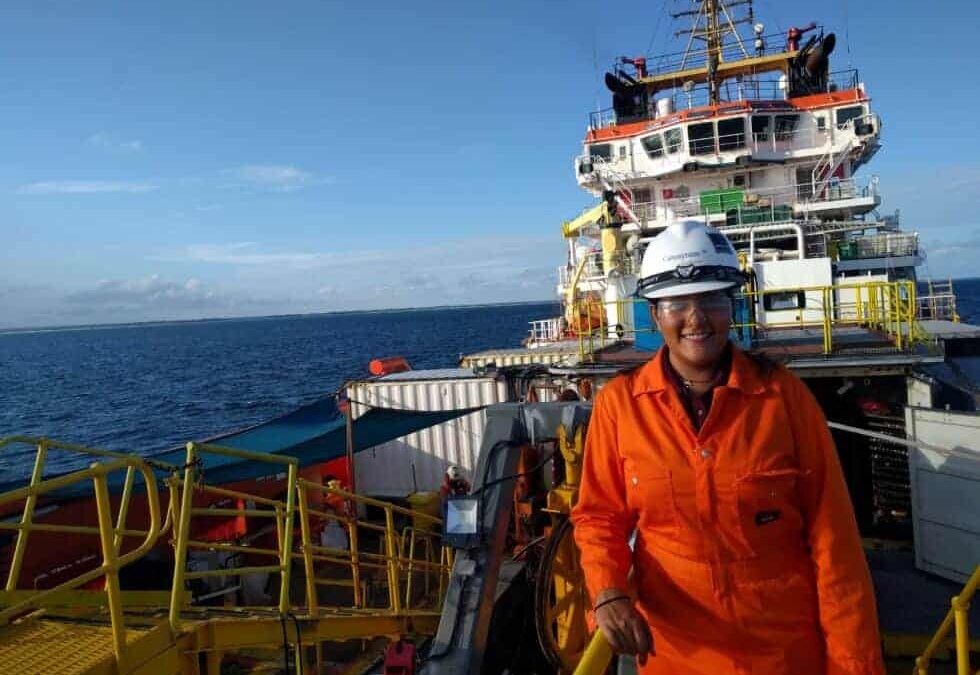

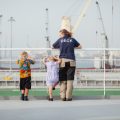
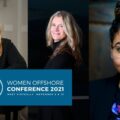
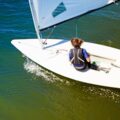
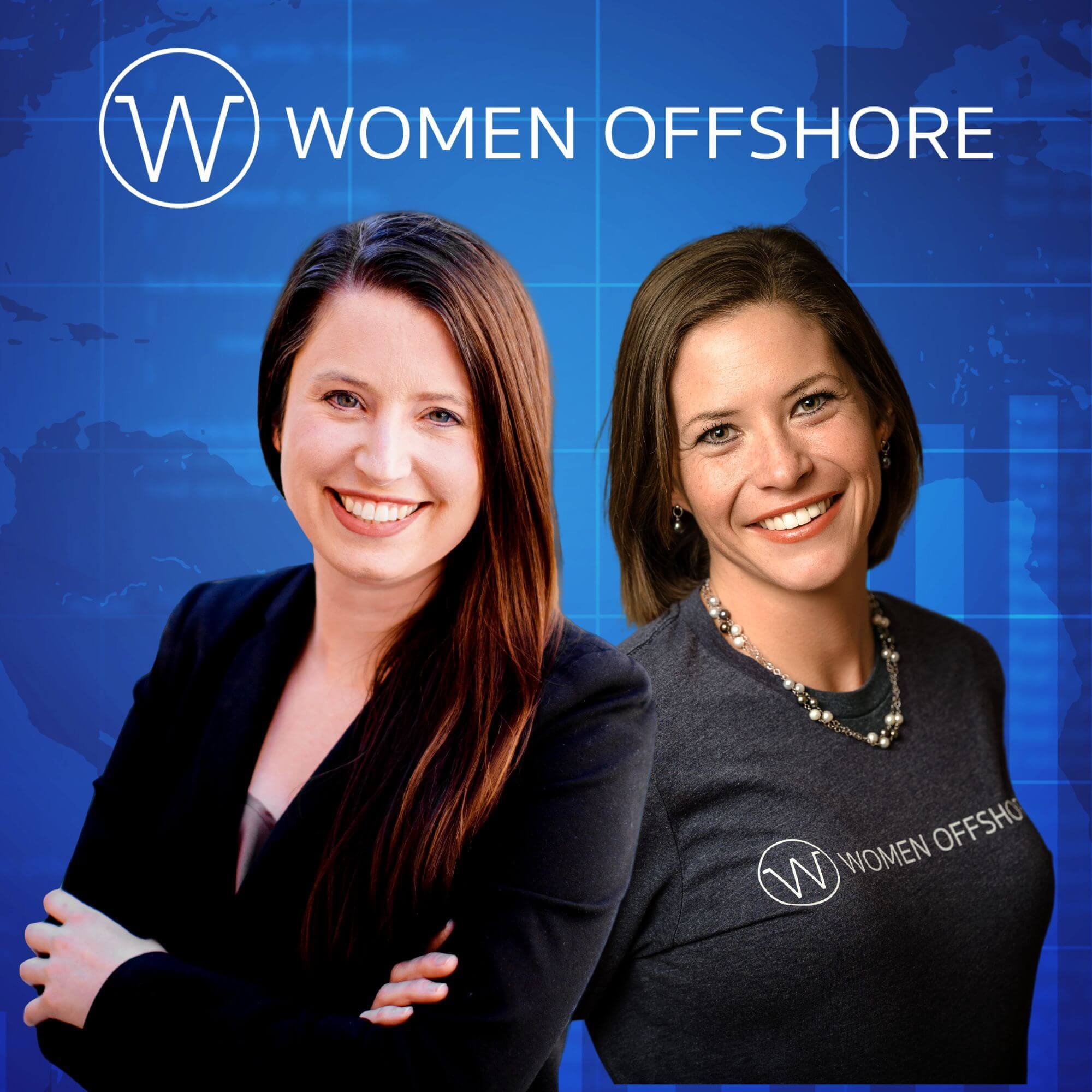


Buenas tardes, me gusto muchisimo esta publicacion, Yo Tambien soy de Venezuela-Caracas, graduada en la Universidad Maritima del Caribe aqui en Venezuela, Mencion Intalaciones Marinas(Maquinas) y me gustaria Muchisimo continuar con mi carrera Maritima. Y esta publicacion me motivo muchisimo mas a seguir adelante y no parar.
Que bueno! Es una carrera fascinante y te deseo todo el exito! No te detengas! Te recomiendo que escuches el podcast de Women Offshore y otro – para latinos – que se llama LatinX Can. Seguro te gustan mucho tambien 🙂